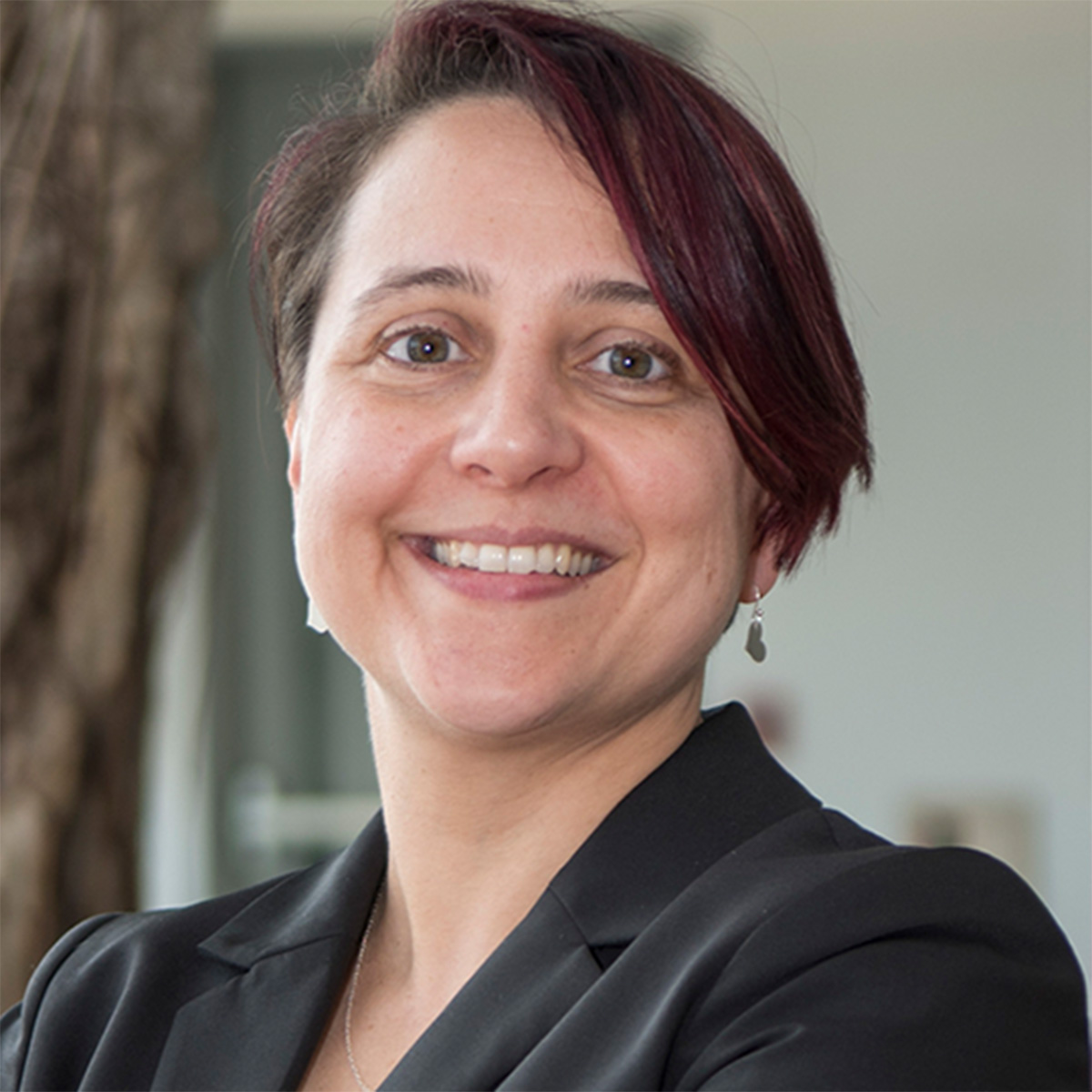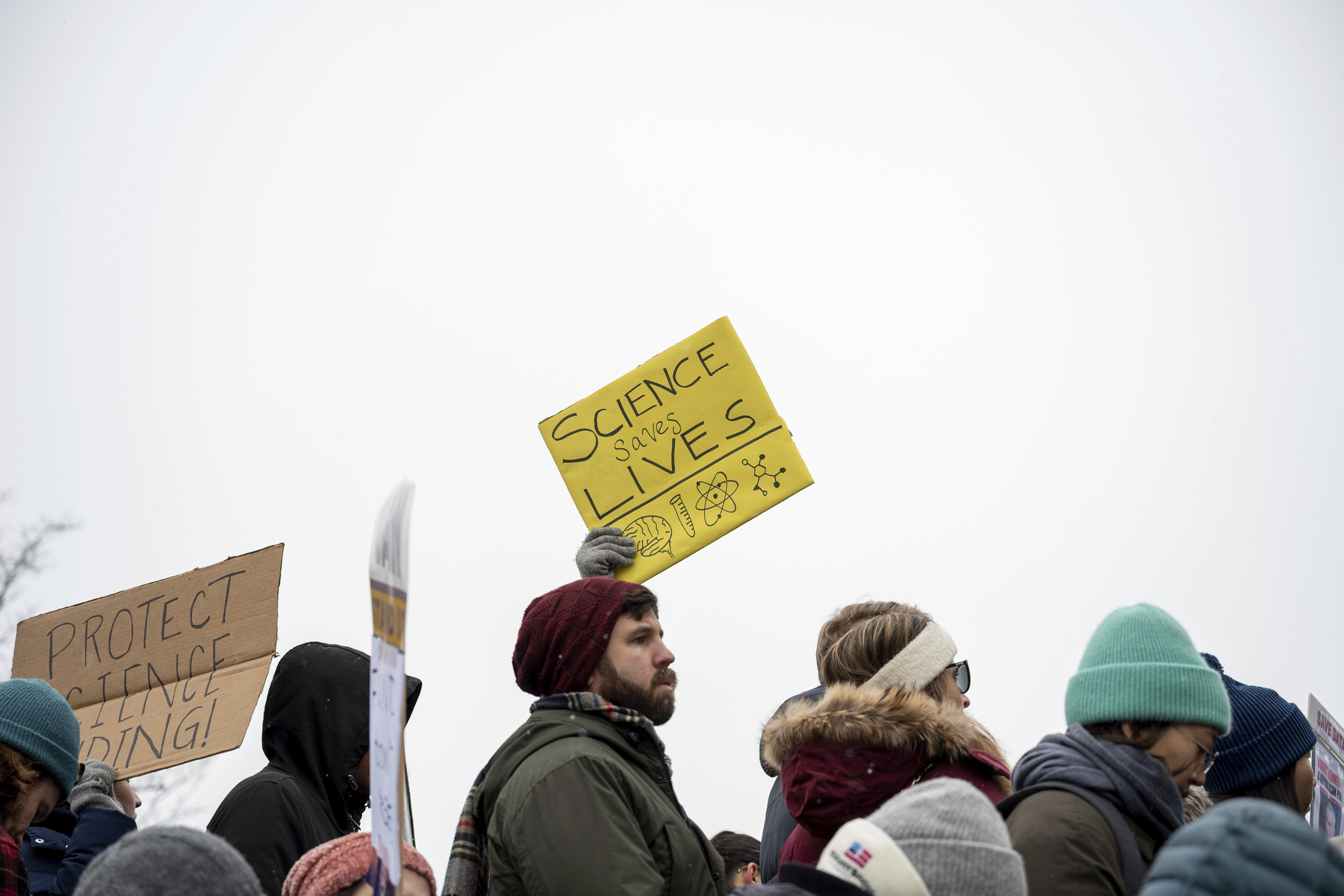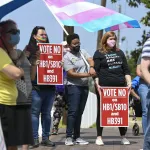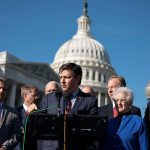At the beginning of the year, Mandi Pratt-Chapman, a researcher at the George Washington Cancer Center, was immersed in a multi-year study collecting data about the sexual orientation and gender identity of cancer patients.
The goal, she explained, was to better understand how clinicians interact with LGBTQ+ people to improve patient care and health outcomes. LGBTQ+ people are among those most likely to face discrimination in accessing health care.
But President Donald Trump’s January 20 executive order demanded that grant funding from the federal government not promote “gender ideology.” A flurry of directives targeting gender have followed, with some now tied up in courts.
On January 31, Pratt-Chapman said she was notified by phone that the funding for her research on LGBTQ+ cancer data collection, which was backed by a grant by the National Cancer Institute — part of the National Institutes of Health (NIH), the federal agency that funds medical research — had been terminated.
Since then, separate research by Pratt-Chapman into how to train oncologists on LGBTQ+ cancer-specific needs has been put on hold; the Federal Register, where information about federal grant proposals is posted by law, has not been scheduling meetings, which are required for funding. This has effectively halted grant applications for scientific research.
“It will have a downstream effect on junior scientists,” Pratt-Chapman said. “Our ability to do science for an entire generation could be lost if they’re so discouraged that they can’t even get grants through the system.”
An official with NIH did not respond immediately to a request for comment about Pratt-Chapman’s terminated grant. A separate request for comment to the NIH communications team about the Federal Register was also not returned immediately. In separate communication, NIH said it has begun to allow notice of review groups to be posted on the Federal Register, but posting about the process for funding decisions remains on hold.
Pratt-Chapman, who identifies as queer, spoke to The 19th about the importance of her research for LGBTQ+ people’s health outcomes and her decision to speak out at a time when some of her peers in the science community may feel scared to do the same.
This interview has been edited for length and clarity.
Barbara Rodriguez: What is the best way to describe your research?
Mandi Pratt-Chapman: National bodies have called to action and come to recognize that understanding sexual orientation, sexual behaviors and gender identity of patients in health care generally — but in oncology, specifically — can have implications for treatment decisions, supportive care needs and risk factors.

So systematically collecting data, asking everyone questions about these things, normalizing these questions, can help us identify those individuals that may need a certain kind of support that a cisgender heterosexual person doesn’t need, or may be subject to greater stigma or interpersonal fear that someone else might not experience, and provide an opportunity to say, “I see you. We care about you. What’s on your mind?”
Regardless of whether it’s gender identity, immigration status, race — if you don’t feel safe, you can’t be honest with your provider, and then you can’t disclose things that might be really important to your care that might affect contraindications for drugs, contraindications for surgery, contraindications for radiation.
If you’re safe, then you’re able to actually have a transparent conversation with your health care team to get the best personalized plan for you, which is what our goal is for everyone.
Tell me more about the research that had its funding terminated.
So I had previous funding from the American Society of Clinical Oncology to look at what kinds of things needed to happen in a clinical system to prioritize the collection and use of sexual orientation and gender identity data.
The research study that was terminated was trying to bring that research to more rural areas and more community-based settings to see if those smaller and more remote settings were different from some of the larger academic settings, because we know that there are differences in care.
The terminated grant prevented us from looking into those smaller, more rural settings where most people get care. And I think for people who are LGBT, in particular, people who are transgender, being in those more remote areas is scary because queer people don’t have like a city that they belong to, or a club that they belong to. We’re all over the place, in every county in every state, and it can be very isolating, particularly in rural areas.
And so it’s even more important, in my view, to understand, how are clinicians interacting with people who are LGBT, and particularly transgender individuals, at risk for cancer or affected by cancer? Because they already avoid and are scared to go to care to begin with.
Where were you in the scope of your research?
We had a plan to interview 16 to 18 new oncology practices, and we had recruited all of our slots. So we had identified all of the institutions where we wanted to interview people, and then we were interviewing three people, three different perspectives, at each of those centers.
We were in the process of scheduling and then conducting those interviews, and we had to reach out to those sites and say, ‘We can’t move forward, because we’ve been told to stop the study.’
We had collected about a third of the federally funded data. We would have had almost 40 states represented, which is really strong in terms of qualitative research. So I am not certain what we can do, if we can do anything with the data that we already collected that was funded. I was told we couldn’t do anything with it, and then I was told we could look at what we had collected. I feel like that’s still a little bit unclear. What I know we can do, and have done, is look at the data that was not federally funded that we previously collected.
There is a lot happening. Your federally funded grant was terminated based on an executive order. But there have been additional EOs, a rescinded budget memo, a paused NIH funding cut. Many of these efforts seek to recognize two sexes, male and female, and remove references to transgender people and gender-affirming care from websites and databases. What are the ramifications of that?
This singular focus on demonizing transgender people — for what end? Why?
All these definitional changes, these restrictions, “protecting women,” are to target this group of people who have historically not had much power. It’s the bully beating up the person with no power. Is that American? Is that what we want to stand up for?
In terms of redefining biological sex, we have spent the last several years trying to decouple sex assigned at birth, gender identity, sexual orientation. The ruling in Bostock [v. Clayton County, Georgia] in 2020 used all of those things under the umbrella of sex discrimination, so that people can’t discriminate on the basis of sex assigned at birth, gender identity or sexual orientation.
So this kind of elimination that sexual orientation and gender identity don’t exist conflates all of these categories and makes it harder scientifically, because people have chromosomal and hormonal and anatomical factors that affect their health, and then they have social factors that affect their health. So their social experience of gender and how people interact with them, and whether people stigmatize them or demonize them, has an impact on health as well.
-
Read Next:
One of my biggest frustrations as a cancer researcher is we don’t have cancer clinical guidelines that do a good job at stratifying, like, how do I screen individuals who were assigned male at birth, who are on estrogen, who have more breast tissue than a cisgender man? We do have decent recommendations from the American College of Radiology, but generally our cervical and breast cancer guidelines don’t really account for the experiences of transgender people that can have differences in results, like cervical screening in a trans man may be a false positive for cancer unless you’re a pathologist that has seen samples that were affected by testosterone.
So there’s a lot of implications for science. I just reviewed a paper that talked about, from a national data set, some breast cancer risk among transgender people versus cisgender people. And it just was so compelling to me that scrubbing these data is just reversing decades of trust and reversing decades of science in trying to personalize care. I mean, we do that all the time in terms of genetics, in terms of the molecular signature of what’s going on with a particular disease. So this is another way of personalizing medicine, just like we do for all kinds of Americans, all kinds of global citizens. But somehow we’re getting all of these obstacles put in the way of it because there’s this lie that these identities don’t exist.
How is the science community doing right now?
I think people are feeling a lot of pain. Something that people may not understand about science is that we train for like five to 10 years, and then we write grants to forward our science, and we usually are rejected the first and second time. It takes months to get that rejection, then you resubmit, and then you hope that your science is funded.
A lot of us don’t have hard funding. What that means is, if we won’t raise the money, we don’t get a paycheck. So scientists are super brave, in my opinion. I’m stunned by how many scientists there are in the U.S. because it’s an extremely risky profession. You’re counting on your training, the novelty of your ideas, the ability to make a difference — and your peers saying so — to get funded, to keep your job and continue your science.
You talked about all of this fear within the science community. Why are you speaking up, given the risk?
I feel like my democracy is more important than my job, and the future for my daughter is more important than any particular project.
Ironically, I was raised an evangelical fundamental Baptist and was kind of taught to be fearless. And, ironically, even though I don’t identify in that way at all anymore, I learned that I didn’t need the blessing of people to say what I saw as truth.
I want to know that when things were tough, I stood up for what was right, defended science, defended civil rights and defended freedom of speech.
Also, I want to know that I’m modeling for my daughter that integrity matters. I don’t know how humanity can function if there is no hope for trust and integrity in science and government. No human is perfect, but acting in accordance with our values is something I taught my daughter was the most important thing — along with kindness and curiosity about the world. If I am silent, I’m telling her that doesn’t really matter — I’m telling her that truth is not important enough to protect if you have to get uncomfortable.







